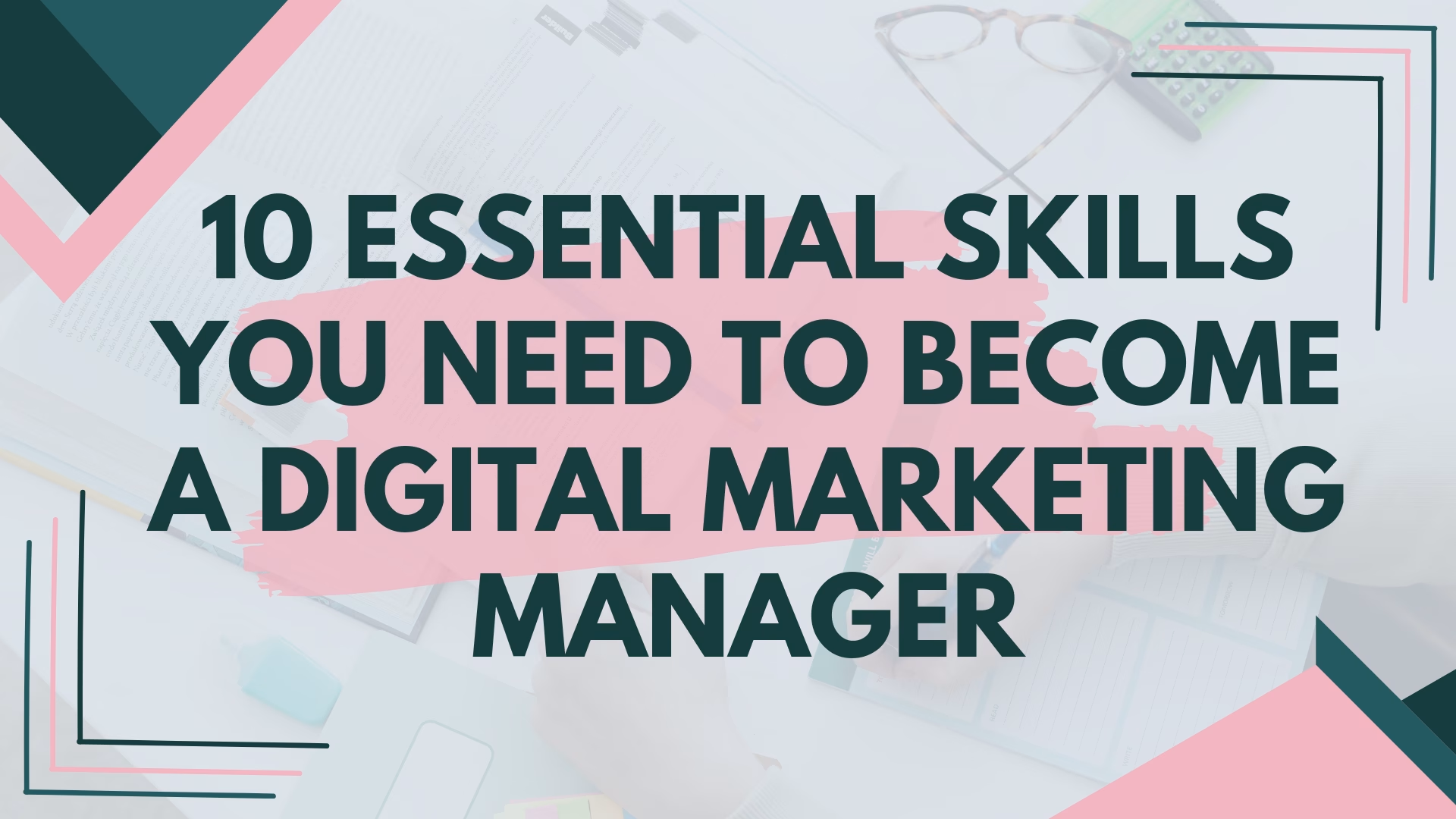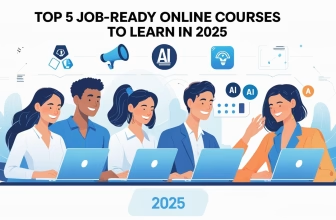10 Essential Skills You Need to Become a Digital Marketing Manager

In today’s fast-paced digital landscape, the role of a digital marketing manager has become one of the most sought-after positions. This is a dynamic role requiring a mix of creativity, analytical thinking, and technical expertise. But what does it take to excel in this career? Here’s a detailed look at the top 10 skills you need to master to become a successful digital marketing manager.
1. Strategic Thinking
At the heart of every successful marketing campaign lies a robust strategy. As a digital marketing manager, you must be able to set clear goals, align marketing efforts with business objectives, and create a roadmap for achieving those goals. Strategic thinking involves anticipating trends, understanding the competitive landscape, and making data-driven decisions to stay ahead of the curve.
2. SEO and SEM Expertise
Search Engine Optimization (SEO) and Search Engine Marketing (SEM) are essential for driving organic and paid traffic to a website. You need to understand keyword research, on-page and off-page SEO tactics, and how to create effective PPC campaigns. This skill ensures your brand stays visible in search results, capturing the attention of your target audience.
3. Content Marketing Skills
Content is king in the digital world. As a digital marketing manager, you’ll need to craft engaging, high-quality content that resonates with your audience. This includes blogs, social media posts, videos, infographics, and more. Strong storytelling skills and the ability to repurpose content across multiple channels are invaluable in building brand authority and trust.
Check Digital Marketing courses
4. Social Media Management
Social media platforms are essential for engaging with your audience and promoting your brand. You’ll need to understand how to create and execute effective social media strategies across platforms like Facebook, Instagram, LinkedIn, and Twitter. This includes managing ad campaigns, analyzing engagement metrics, and staying up-to-date with platform updates and trends.
5. Data Analytics and Interpretation
Data is the backbone of modern marketing. To make informed decisions, you need to analyze campaign performance metrics, website traffic, conversion rates, and more. Familiarity with tools like Google Analytics, Google Data Studio, and marketing dashboards will help you measure ROI and optimize strategies based on data insights.
6. Email Marketing Proficiency
Email marketing remains one of the most effective ways to nurture leads and drive conversions. As a digital marketing manager, you should know how to create email campaigns that are personalized, engaging, and optimized for open and click-through rates. Understanding email automation tools like Mailchimp or HubSpot is also crucial.
7. Paid Advertising Expertise
Digital advertising, including Google Ads and social media ads, is a key component of many marketing strategies. You need to know how to create compelling ad copy, choose the right targeting options, and optimize ad spend for maximum ROI. This also involves staying updated on platform algorithms and ad formats.
8. Project Management Skills
Managing multiple campaigns and teams requires strong project management skills. You’ll need to set deadlines, delegate tasks, and ensure that everything runs smoothly. Familiarity with tools like Asana, Trello, or Monday.com can help streamline workflows and improve collaboration.
9. Basic Coding and Web Design Knowledge
While you don’t need to be a developer, having a basic understanding of HTML, CSS, and web design principles is helpful. This knowledge can come in handy when troubleshooting website issues, making minor edits, or collaborating with developers on website projects.
10. Adaptability and Lifelong Learning
The digital marketing landscape is constantly evolving, with new tools, platforms, and trends emerging all the time. To stay relevant, you must be adaptable and committed to lifelong learning. This involves keeping up with industry blogs, attending webinars, taking courses, and experimenting with new strategies.
Additional Tips for Aspiring Digital Marketing Managers
- Networking: Connect with industry professionals through LinkedIn and marketing events to stay updated and gain insights.
- Certifications: Earning certifications like Google Ads, HubSpot, or Facebook Blueprint can enhance your credibility.
- Creative Thinking: Bring fresh ideas to the table and think outside the box to solve marketing challenges.
- Customer-Centric Approach: Always prioritize understanding and addressing your audience’s needs.
Conclusion
Becoming a digital marketing manager requires a unique combination of technical skills, creative thinking, and strategic planning. By mastering these 10 essential skills, you can build successful campaigns, drive business growth, and establish yourself as a leader in the digital marketing space. Whether you’re just starting out or looking to advance your career, investing in these skills will pave the way for success.
If you want to explore the blogs like this, click here
FAQs
1. Do I need a degree to become a digital marketing manager?
While a degree in marketing, communications, or a related field can be helpful, it’s not always necessary. Practical experience, certifications, and a strong portfolio often carry more weight.
2. How long does it take to become a digital marketing manager?
This varies depending on your prior experience and the time you dedicate to learning. With focused effort, you can build the necessary skills in 1-3 years.
3. What tools should I learn for digital marketing?
Familiarize yourself with tools like Google Analytics, SEMrush, Mailchimp, Hootsuite, and Canva to excel in digital marketing.
4. How can I stay updated with digital marketing trends?
Follow industry blogs, join webinars, and engage in online communities. Platforms like HubSpot, Neil Patel’s blog, and MarketingProfs are great resources.
5. What industries hire digital marketing managers?
Digital marketing managers are in demand across industries, including e-commerce, tech, healthcare, education, and finance.




